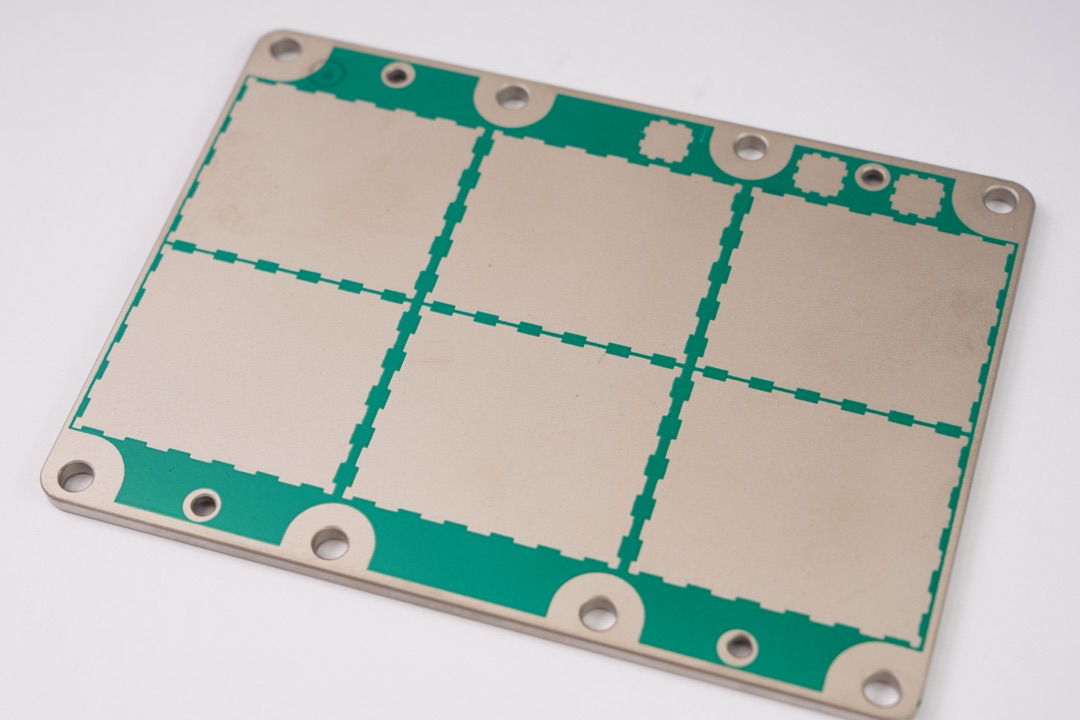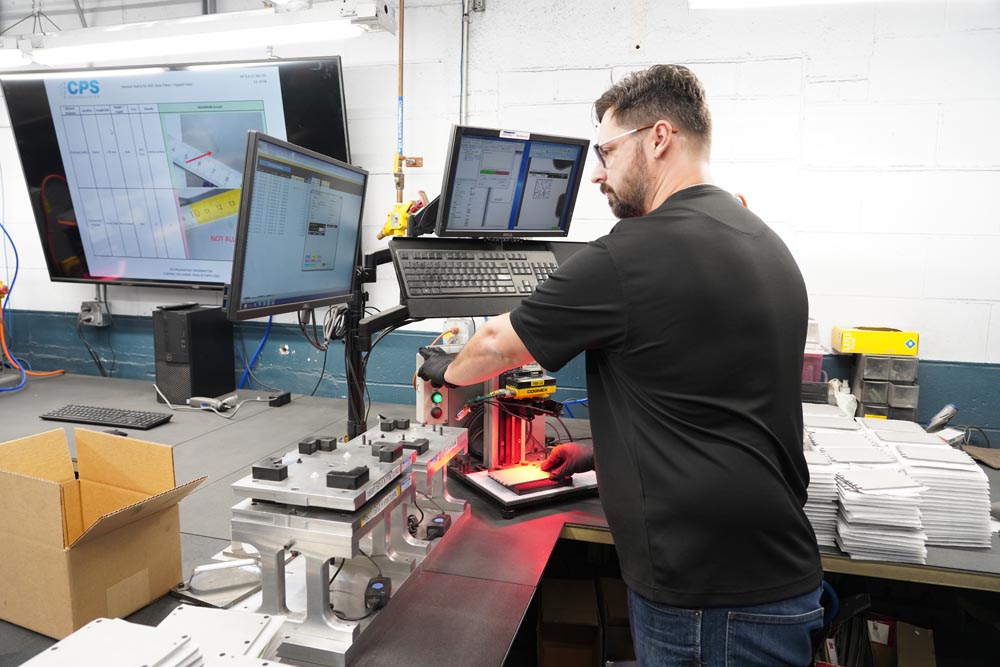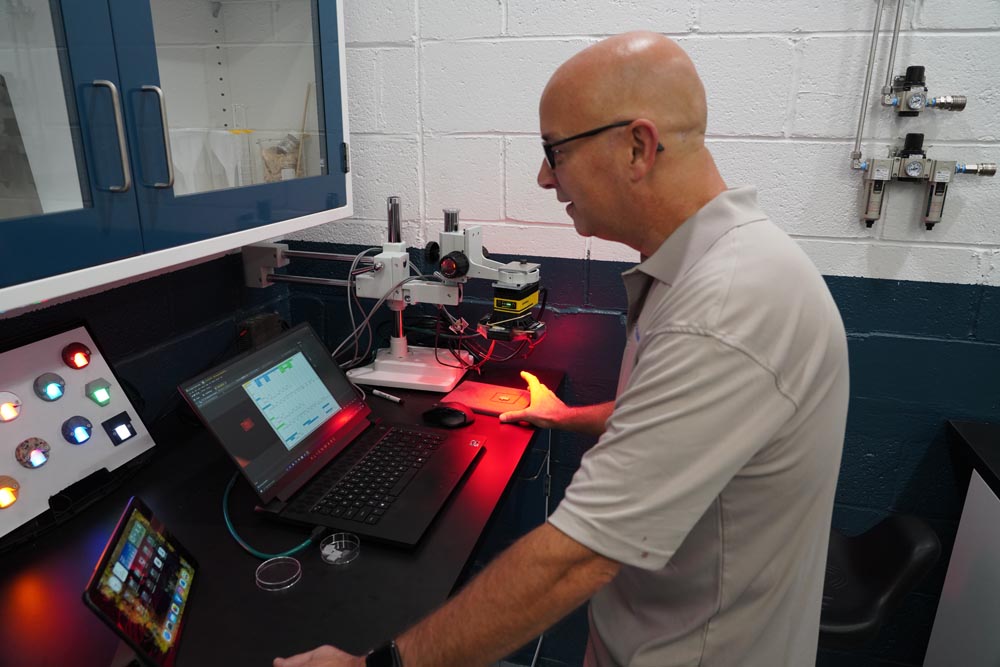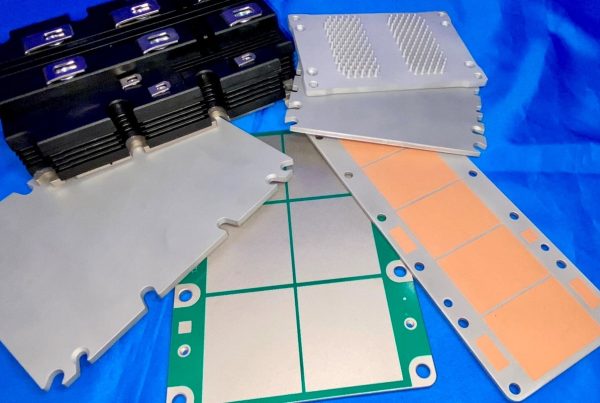In the evolving landscape of transportation, Insulated-Gate Bipolar Transistors (IGBTs) play a pivotal role. They are key in efficiently converting stored energy for powering electric motors across various applications, from trains to hybrid and electric vehicles. Not only do they provide high-current and voltage conversion for electric drive systems, but they also effectively convert mechanical braking energy back to electrical energy for storage and reuse.
This type of power cycling results in IGBT power modules’ thermal heating and cycling — a process that can impact performance and reliability when heat is not dissipated effectively.
To ensure the safety and enhance the performance of these IGBT power modules, CPS Technologies has pioneered innovative baseplate design and manufacturing techniques, tailored for transportation applications.
Below, we’ll be reviewing the key features of IGBT baseplates and highlighting the importance of advanced techniques—such as thermal conductivity optimization, curvature design, and consultative processes—to protect IGBT power modules in transportation applications.
Optimizing IGBT Efficiency with Advanced Thermal Management Solutions
A typical power module assembles many different materials for various properties and performance needs. Aside from the IGBT devices, there are dielectric substrates on which the IGBT devices are assembled as well as the power module baseplate to which the substrates are soldered.
The system of the substrates and baseplate material must be able to dissipate heat effectively so that the power electronics do not exceed their temperature limit. Additionally, these materials must have similar coefficients of thermal expansion (CTE) so that solder interfaces between the devices, substrates, and baseplate do not fail by cracking or delamination, breaking the thermal dissipation path. Also critical in designing these IGBTs is the baseplate shape, which needs to interface with a cold plate for thermal dissipation.
At CPS, we’ve designed the AlSiC as a thermal management material with a high thermal conductivity for good thermal dissipation and a CTE value that is compatible with dielectric substrates. While materials like aluminum and copper also have high thermal conductivities and can be used, the CTE values are much higher — limiting the size, power, and reliability of these solutions. The thermal management capability of the AlSiC baseplate solution enables greater thermal performance with higher-power devices, boasting a lifecycle of 30 years or more.


The Role of IGBTs in Transportation
Transportation, particularly trains, represents a primary application for IGBT baseplate modules. Trains operate with high power during acceleration, intermittent coasting, and powering down at stops. This duty cycle exposes IGBTs to potential failures often occurring at the solder point between the baseplate and its connecting substrate.
As noted above, a fundamental part of protecting IGBT baseplates from these issues is ensuring conductivity and adequate matching of each material’s CTE.
IGBT baseplate design relies on high thermal conductivity to minimize mechanical stresses during operation. Achieving matched CTE means maintaining consistent expansion and contraction rates of all components within the assembly. This is done primarily through the type of materials used in the baseplate and the shape of the baseplate design itself.
While metals like aluminum are suitable for heat dissipation in smaller single IC or discrete devices where thermal expansion is less critical, larger devices found in transportation (such as the high-power IGBTs used in trains) require materials that have both high heat dissipation combined with material-compatible thermal expansions. These two properties provide the necessary “thermal management” properties for high-power and high-reliability IGBT power modules.
To accommodate these use cases, CPS has developed aluminum silicon carbide (AlSiC) metal matrix composite (MMC) IGBT baseplates that offer excellent thermal properties and has fast become the preferred choice for IGBT baseplates where guaranteed reliability is a must.
Global Innovation at CPS Technologies
Ready to discuss your MMC design needs?
CPS offers a suite of innovative solutions to give clients complete peace of mind in their solution. With our state-of-the-art AlSiC composite, proprietary machining processes, and time-tested expertise, we’ll show you why CPS is a trusted partner in the industry.
Baseplate Design for Improved Thermal Dissipation
Aside from the material itself, how can an IGBT baseplate be designed to provide cutting-edge performance and reliability in transportation?
The secret is in the SiC particulate preform and the aluminum casting process. CPS provides a near net-shaped baseplate with a flat surface for substrate attachment and a predictable post-assembly curved cold plate surface to interface to the cold plate.
In structural terms, this flat substrate surface minimizes the interface between the soldered substrate and the baseplate, allowing for the shortest thermal path. The curved cold plate surface will interface with the cold plate preventing air gaps for improved thermal dissipation.
From there, the curvature of the cold plate surface is subjected to the assembly of the power module, where there are many thermal processes (such as soldering and welding), and assembly of all the other materials of the power module. These materials include substrate material housing, Copper bus bars, wire bonds, and dielectric silicon.
This is where CPS’ design expertise provides optimized baseplate solutions. Based on our extensive process knowledge, CPS provides continuous monitoring and characterization of baseplates that can be used to optimize the assembly curvature as the customer’s IGBT design and assembly requirements change over time.


Consultative Process for Optimal Design
IGBT modules for trains are one of the most prominent transportation use cases, but as EVs rise in prominence, manufacturers will need to explore new solutions that can provide reliable protection for a new generation of vehicle-led IGBTs.
The best way to meet these unknown challenges is to build relationships with design partners who can leverage their expertise in service of business growth. At CPS, we pride ourselves on these kinds of consultative partnership. Across every stage of our iterative design approach, we work with clients to develop and deliver the ideal baseplate solution.
For example, we’ll help clients identify the ideal dome shape, substrate materials, and other critical factors needed for every baseplate application. This is followed by multiple correlation experiments conducted across the design phase to ensure that the final product performs exactly as it should.
By characterizing the baseplate curvature, CPS ensures the production of high-quality baseplates and provides cutting-edge solutions for companies to enable higher power, performance, and reliability demands.
Innovative Materials & Design: the CPS Advantage
Protecting IGBT power modules in transportation applications requires innovative baseplate design, substrate materials, manufacturing processes, and thermal management. CPS’ AlSiC provides a material with thermal management properties (thermal conductivity combined with CTE compatibility) combined with unique product design required for the reliability and performance of high-power IGBT transportation applications.
Contact us to discuss your baseplate design needs! CPS offers a 30-year reliability guarantee alongside our suite of innovative solutions to give clients complete peace of mind in their solution. With our state-of-the-art AlSiC composite, proprietary machining processes, and time-tested expertise, we’ll show you why CPS is a trusted partner in the industry.




